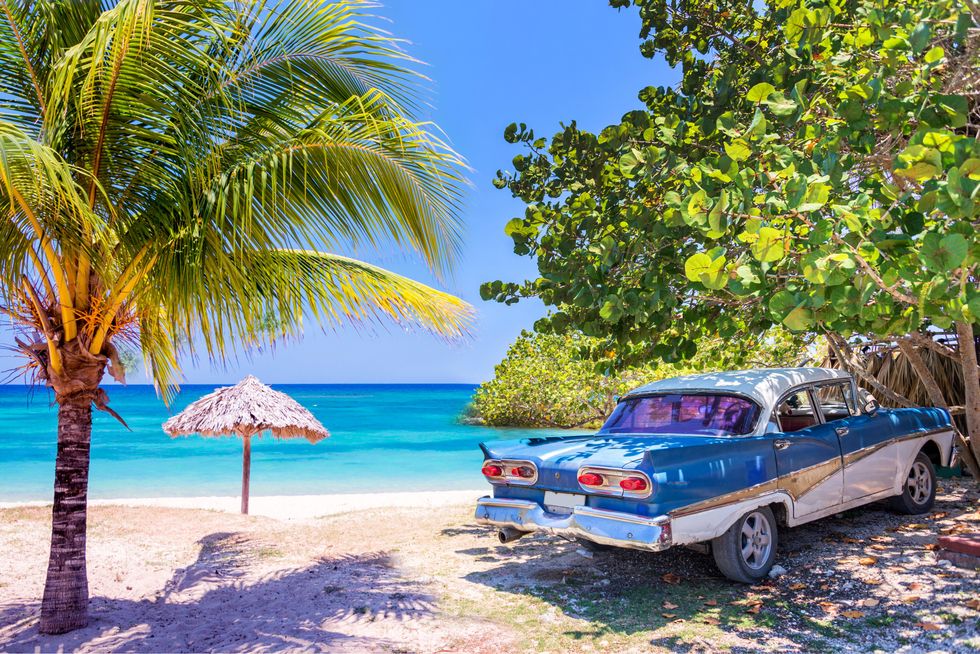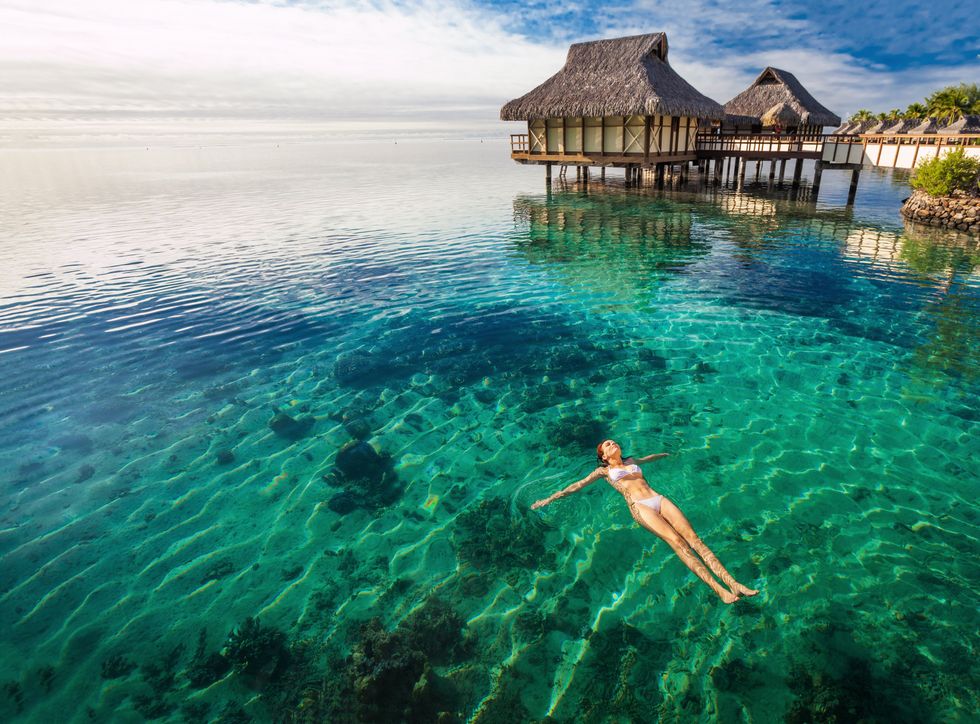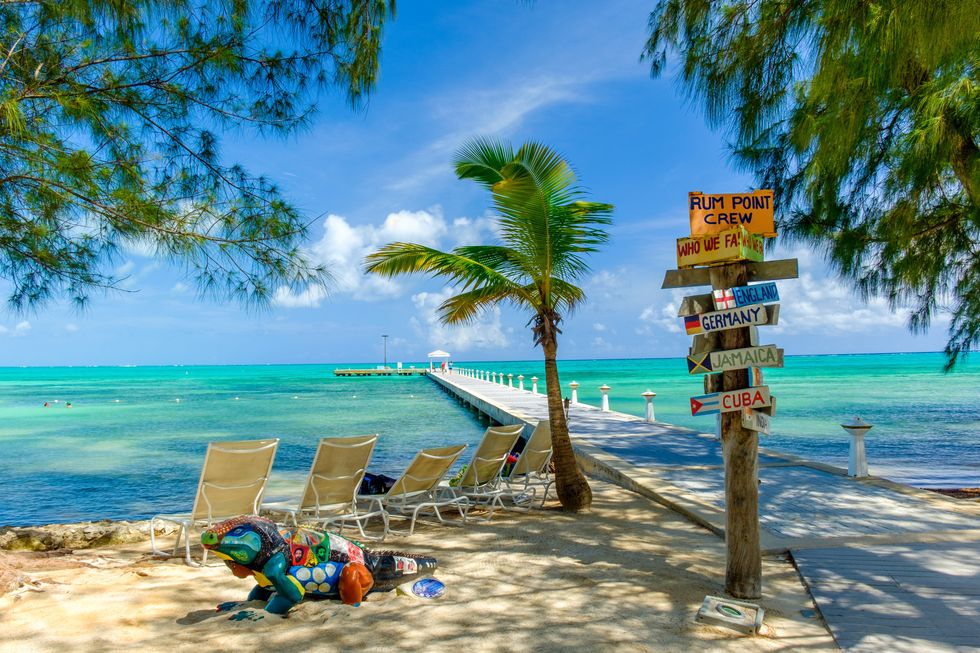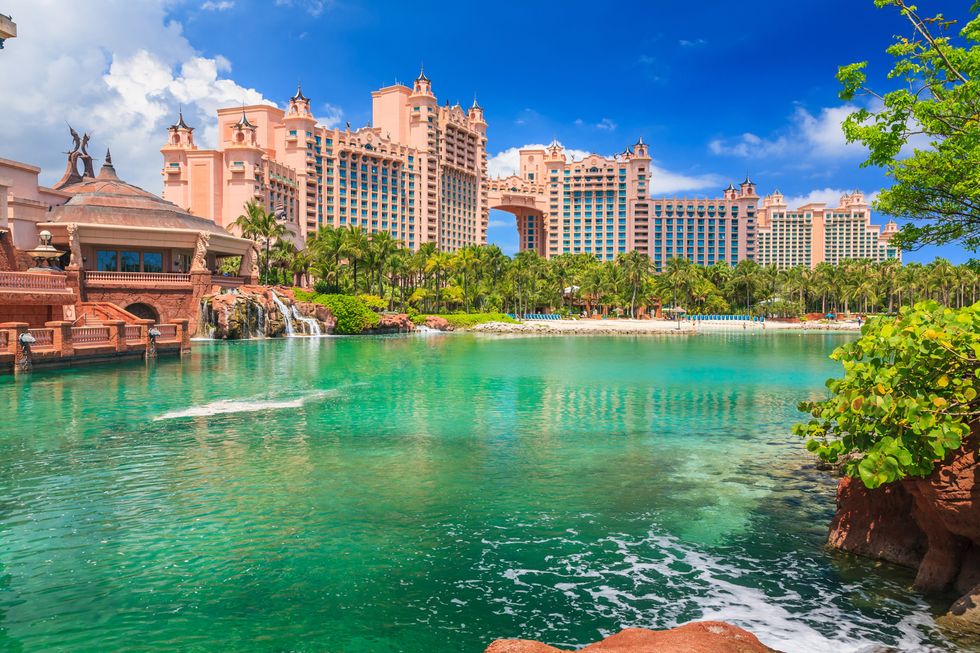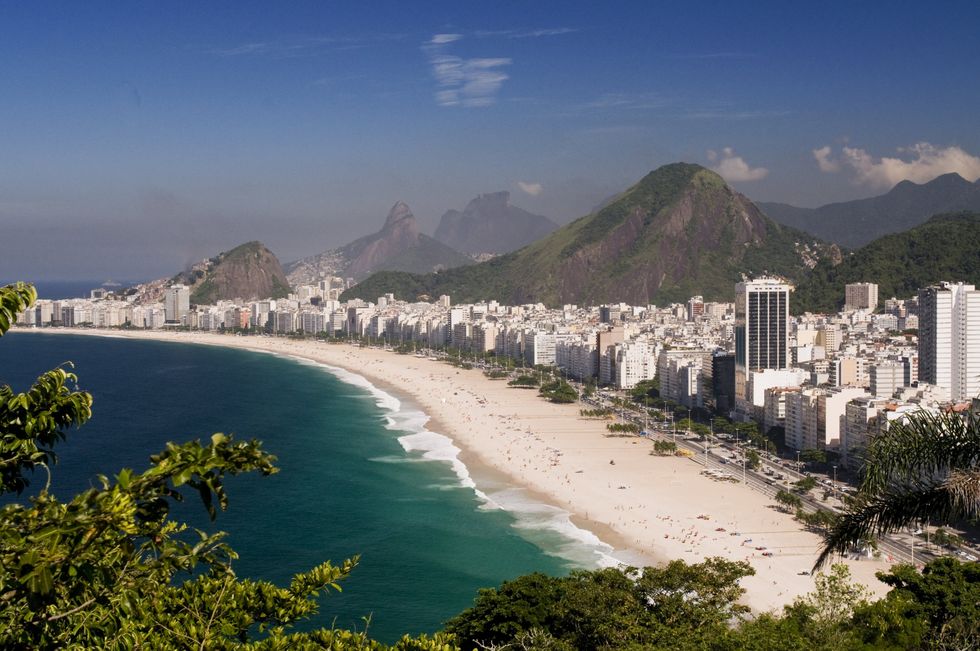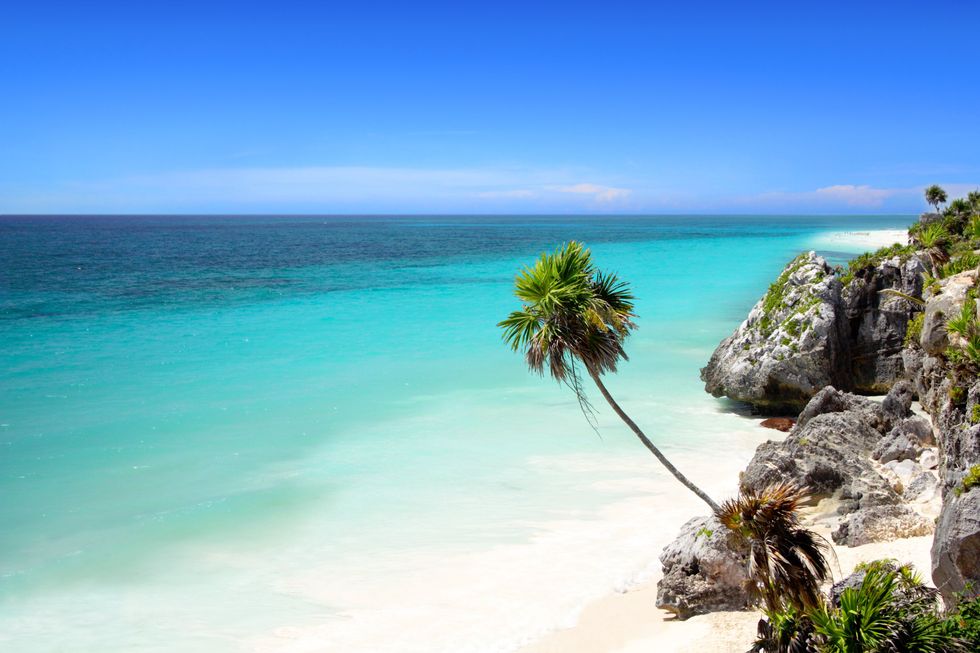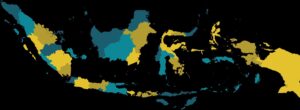Canada has issued travel advisories for these 7 popular Asian destinations
7 min readIf you’re planning to take a tropical vacation this summer, you’ll want to take note of the latest travel advice from the Government of Canada.
Canada has issued and updated travel advisories for a number of tropical destinations, including the Bahamas, Cuba, and other popular tourist spots.
The travel advisories warn of safety risks including public events, shortages, outages, and crime, with some even warning travellers to avoid non-essential trips in certain countries.
Whether you’ll be jetting off to white-sand beach destinations in the Caribbean or visiting the islands of the French Polynesia, here are seven Government of Canada travel advisories you’ll want to take note of.
Cuba
A beach in Cuba.
Risk Level: Exercise a high degree of caution
Details: Canadians travelling to Cuba are advised to exercise a high degree of caution in the country due to “shortages of basic necessities including food, medicine and fuel.”
According to the travel advisory, Cuba faces “chronic and severe” shortages of basic necessities, including food, bottled water, public water supply, medication, fuel and cash.
“Fuel shortages are currently critical and affect a wide range of services. Travelling across the island is extremely challenging. Public transportation services, including taxis, are often disrupted, leaving tourists with few options to travel,” says the government.
The advisory also notes that “intermittent shortages” of tap water provided by municipalities happen, including in Havana and in resorts, and that local authorities enforce the rationing of food and medications, which could also affect travellers.
Those travelling to Cuba are advised to plan accordingly and bring some basic necessities with them like toiletries and medication. It’s also a good idea to keep a supply of water, food and fuel on hand, and make sure you have access to a complete emergency kit.
Canada’s travel advisory for Cuba notes, however, that travellers can “take normal security precautions” in the resort areas of Cayo Coco, Cayo Largo del Sur. Cayo Santa Maria, Guardalavaca and Varadero.
French Polynesia
Moorea, Tahiti.
Martin Valigursky | Dreamstime
Risk Level: Take normal security precautions
Details: The Government of Canada recently updated its travel advisory for the French Polynesia with new information about the 2024 Summer Olympic Games.
“The surfing events of the 2024 Summer Olympic Games will take place in Teahupo’o, Tahiti, from July 27 to August 5, 2024,” says the travel advisory.
“If you plan to travel to Olympic events in Teahupo’o and Papeete, expect an increased presence of security forces, particularly around public gatherings and venues.”
Canada’s travel advice for the French Polynesia, which applies to the islands of Tahiti and Moorea, as well as Maupiti, Bora Bora, Raiatea and Huahine, also warns that crime, such as pickpocketing and purse snatching, occurs, and that demonstrations take place from time to time in the region.
“Even peaceful demonstrations can turn violent at any time. They can also lead to disruptions to traffic and public transportation,” it says.
If you’ll be travelling to the French Polynesia, you are advised to ensure that your personal belongings, including passports and other travel documents, are secure at all times, avoid areas where demonstrations and large gatherings are taking place, follow the instructions of local authorities and monitor local media.
Cayman Islands
A beach on Grand Cayman, Cayman Islands.
Risk Level: Take normal security precautions
Details: Canada’s travel advisory for the Cayman Islands advises travellers to take normal security precautions while in the British overseas territory.
Recently, the Government of Canada issued a notice to travellers heading to the Cayman Islands about getting consular assistance while travelling in the region.
“There is no resident Canadian government office in the Cayman Islands,” says the government. “You can obtain consular assistance and further consular information from the High Commission of Canada in Jamaica, in Kingston.”
The government’s safety advice for the Cayman Islands notes that petty crime, such as pickpocketing and purse snatching, occasionally occurs, though the crime rate is “very low.”
The government advises that travellers ensure that their personal belongings, including their passport and other travel documents, are secure at all times and that they avoid bringing valuables to the beach as well as walking alone to deserted beaches or poorly lit areas after dark.
Canada’s travel advisory also notes that demonstrations can occur, and that even peaceful demonstrations can turn violent.
Travellers should avoid areas where demonstrations and large gatherings are taking place, follow the instructions of local authorities, and monitor local media for information on ongoing demonstrations.
Bahamas
A resort in Nassau, Bahamas.
Risk Level: Exercise a high degree of caution
Details: The Government of Canada said on June 4 that it had updated its travel advice for the Bahamas related to crime and medical services and facilities in the country.
According to its travel advisory, Canadians should “exercise a high degree of caution” in the Bahamas due to “high rates of crime, especially in Freeport and Nassau.”
“Violent crime occurs and is often related to gang activity,” says the advisory, noting that the most common crimes committed against travellers in Freeport, Grand Bahama Island, and Nassau include armed robberies, fraud and theft.
“Robberies also occur in cruise ship terminals and in and around popular resort areas, even in daylight hours,” says the Government of Canada.”
Travellers in the Bahamas are advised to stay in tourist areas, always remain vigilant, avoid walking alone at night and avoid carrying large sums of cash or valuables.
The Canadian government also updated its section on medical services and facilities in the Bahamas.
“Medical care is good in Freeport and Nassau, but limited elsewhere,” it says, noting that response times to emergency calls may be slow.
“If you require specialized care or sustain a serious injury, you may be evacuated to another island for treatment. Make sure you get travel insurance that includes coverage for medical evacuation and hospital stays.”
Sint Maarten
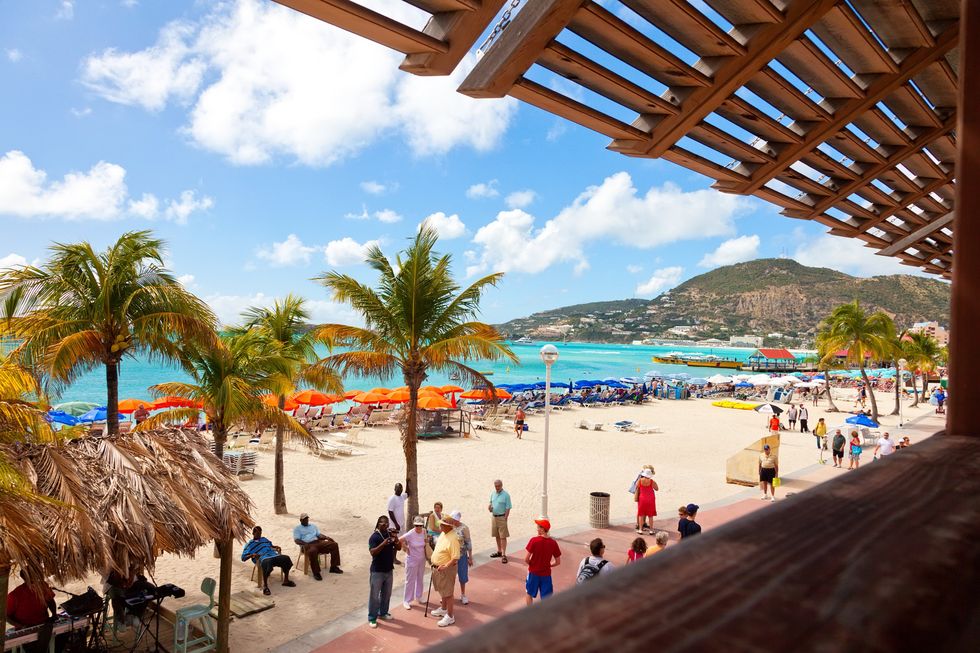
Risk Level: Take normal security precautions
Details: On June 4, the Government of Canada updated its travel advice for Sint Maarten due to nationwide power outages.
“Power outages are occurring several times per day and can last many hours,” says the government.
According to the advisory, power outages can affect public lighting and traffic lights, telecommunications and security systems, stores and food supply, hotels and other accommodations, and banks and ATMs.
The government advises that those travelling in Sint Maarten have a complete emergency kit on hand, including several flashlights, carry a cell phone, power banks, chargers and a list of emergency numbers, keep a sufficient supply of water, food and fuel on hand, monitor local media for updates and follow the instructions of local authorities.
Brazil
A beach in Rio de Janeiro.
Risk Level: Exercise a high degree of caution
Details: Canadians travelling in Brazil are advised to “exercise a high degree of caution,” due to “high crime rates and regular incidents of gang-related and other violence in urban areas.”
The Government of Canada notes that crime rates are high throughout the country, particularly in Brasilia, Porto Alegre, Recife, Rio de Janeiro, Salvador and Sao Paulo.
“Tourists are most commonly affected by theft, but incidents of violent crime have occurred,” it says.
Street crime, it says, including pickpocketing, purse snatching and theft from cars, is common in Brazil’s large cities, with tourists often targeted.
The government advises that Canadian travellers ensure that their personal belongings are secure at all times while travelling in Brazil.
Other good practices include avoiding showing signs of affluence, carrying only small amounts of cash and keeping cameras and portable electronic devices concealed.
“Remain vigilant when visiting tourist destinations such as beaches, outdoor markets, hotel grounds, bars and nightclubs [and] airports and bus stations,” says the government.
In May, the Government of Canada added a risk level to its Brazil travel advisory for border areas to “avoid non-essential travel” due to drug-related criminal activity and arms smuggling by illegal armed groups and other criminal organizations.
Canadians are advised to avoid going within 20 kilometres of the border with Argentina, excluding Iguazú National Park, the border with Bolivia, excluding Pantanal National Park, the border with Colombia, the border with French Guiana, the border with Guyana, the border with Paraguay, the border with Peru and the border with Suriname, unless for essential reasons.
They are also advised to avoid non-essential trips within 50 kilometres of the border with Venezuela.
Mexico
A beach in Mexico.
Risk Level: Exercise a high degree of caution
Details: Canadians travelling to Mexico are advised to “exercise a high degree of caution,” due to high levels of criminal activity and kidnapping.
“Levels of crime, particularly violent crime, are high throughout Mexico. Arrest and detention rates are low and don’t deter criminal activity,” says the government.
“Criminal groups, including drug cartels, are very active. Clashes between cartels or gangs over territory, drugs and smuggling routes are common.”
Those planning on travelling to Mexico are advised to remain vigilant at all times, stay in tourist areas, be very cautious on major highways, avoid travelling at night and monitor local media closely.
The government of Canada also recently updated its regional advisories for Mexico.
“As part of our ongoing review of our destination-specific travel advice pages, we have reviewed and updated the regional risk levels for Mexico,” the Government of Canada said on May 29.
Canadians are being told to avoid non-essential travel to several Mexican states due to “high levels of violence and organized crime,” including Chihuahua, excluding Chihuahua City, Colima, excluding the city of Manzanillo if accessed by air, Guerrero, excluding the cities of Ixtapa/Zihuatanejo if accessed by air, Sinaloa, excluding the cities of Los Mochis and Mazatlán, and Zacatecas, excluding Zacatecas City.
Safe travels!
Before you get going, check out our Responsible Travel Guide so you can be informed, be safe, be smart, and most of all, be respectful on your adventure.
This article’s cover image was used for illustrative purposes only.
From Your Site Articles
